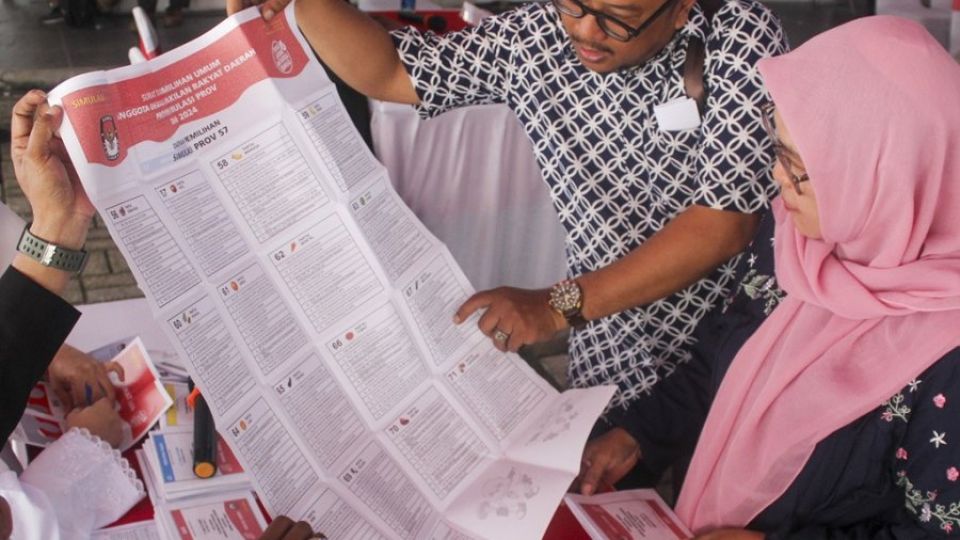February 7, 2024
JAKARTA – Alicia, a 30-year-old designer who has spent half her life in Malaysia, has her weekend plans set. On Saturday, she will drive to the Indonesian embassy in Kuala Lumpur, where she will be given two ballot papers. One for picking her presidential pick, and the other to choose her legislative representative.
For the latter, she has planned to employ her usual strategy: choosing randomly.
“I don’t even know these people, or what they do. None of them, I feel, have ever engaged or socialized with the diaspora community here,” she told The Jakarta Post on Tuesday.
Unbeknownst to Alicia and many other members of the Indonesian diaspora, their legislative votes are among the most sought-after in the country.
The Jakarta II electoral district covering Central Jakarta, South Jakarta and overseas voters is known to be a tough electoral district where dozens of big names are among the 125 legislative candidates vying for seven seats in the House of Representatives.
Out of the 4.3 million registered voters in the district, 40 percent are members of the diaspora across 128 cities overseas who will cast their votes either by mail, by going to polling stations that will open for a day from Monday to Feb. 14 or by using mobile ballot boxes.
Stay informed and up-to-date with the latest news and developments surrounding Indonesia’s highly anticipated 2024 general elections.
Despite accounting for a large portion of the district’s votes, the Indonesian diaspora community has for a long time expressed a sense of distance and detachment from legislative representatives.
In a 2019 survey released by the Indonesian Diaspora Network-United (IDN-United) before the legislative election in the same year, only 15 percent of Indonesians abroad said that they were aware of their legislative candidates, while 85 percent expressed that they were either “not aware” or “less aware”.
The same survey also found that some 60 percent of the diaspora population was oblivious about the incumbents representing them at the House.
No expectations
Experts have long attributed this disconnect to the lack of candidate outreach to overseas voters, as well as the fact that diaspora communities face a distinct set of issues like legal protection and consular assistance. Political analyst Ujang Komarudin predicted that the legislative race in the Jakarta II district will likely be determined more by money and power.
“In my 15 years in Malaysia, I’ve never felt the work of House members,” Alicia said.
Malaysia is host to the largest population of the Indonesian diaspora, with over 832,000 Indonesians registered to vote in the general election.
Voting abroad for the first time, Christin, a 34-year-old master’s student in Berlin, Germany who asked to be identified only by her first name, has received a set of ballot papers by mail. As she previously had lived in Medan, the names of the Jakarta II candidates were unfamiliar to her.
She will likely cast a random vote, she said, but will strategically pick a candidate from a party aligning most with her presidential preferences.
“I am at least aware of these parties and what they have to offer. But the candidates? I have no idea,” she said. “I wished that they engaged more. After all, they’re speaking on our behalf.”
Some 6,000 kilometers away in Syracuse, New York, the United States, Syarifah Nur Aida, a 33-year-old master’s student, chose to defy the odds of voting randomly by spending hours researching online each of the legislative candidates’ platforms.
Since the candidates rarely engage with the diaspora community, Aida said that she had to be “independent” and go the extra mile to ensure that her vote would align with her political views.
When Abraham Sridjaja, a candidate from the Golkar Party, hosted a pop concert in New York City in September, Aida took a 5-hour long bus ride to speak to him personally.
Even then, Aida admitted doubts about whether any elected House member could do anything for Indonesians abroad like herself.
“I have few aspirations and no expectations. I don’t think that they can take care of the diaspora community while also navigating the complex political constellation in Jakarta,” Aida said. “My vote, I think, represents my hopes for Jakarta instead, where I was born and raised. I hope that they at least do their jobs there.”


